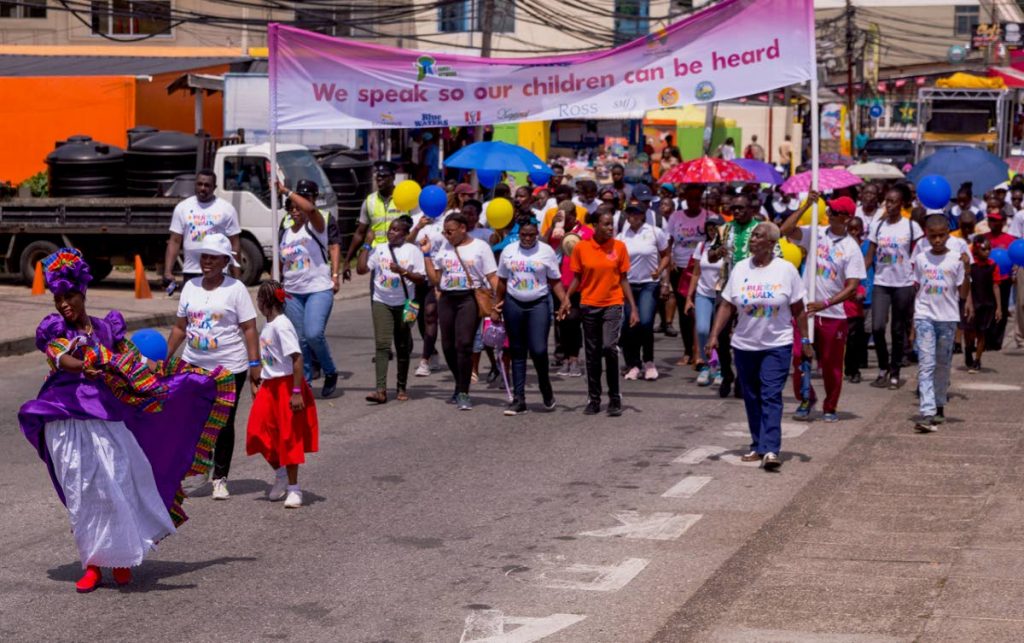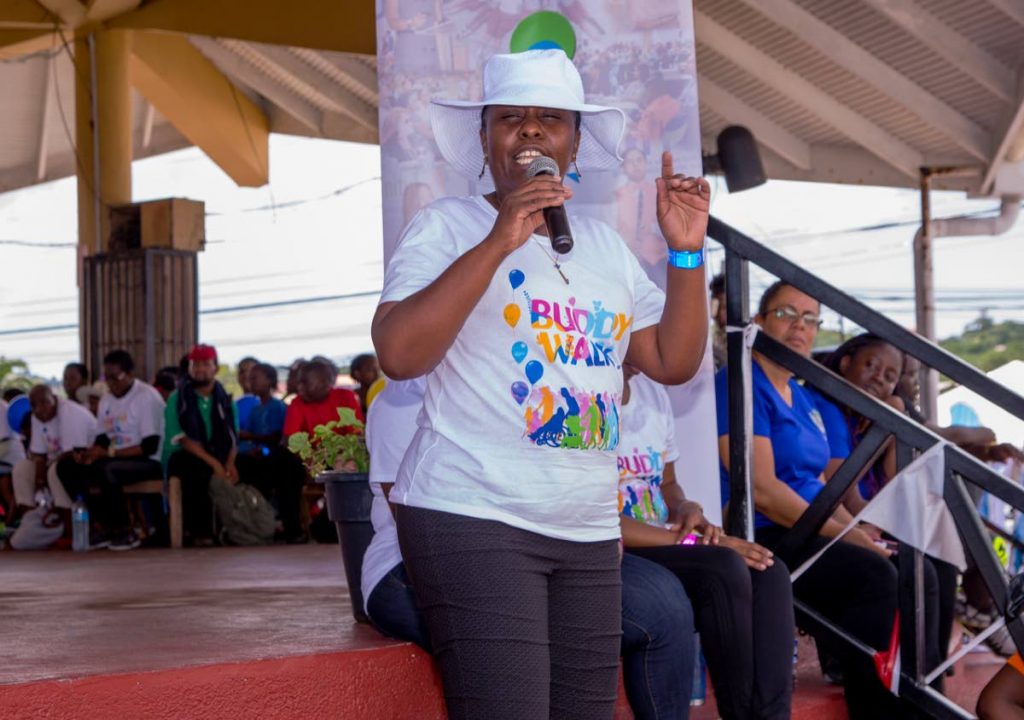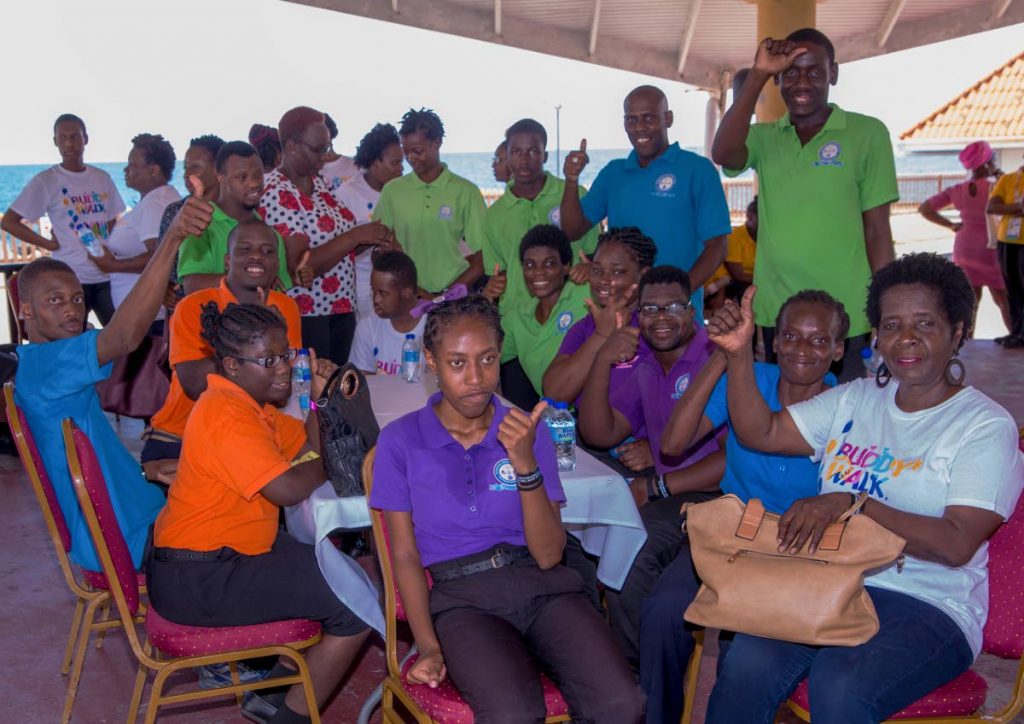Down Syndrome people still battling stigmas

Stigmatisation is the biggest challenge confronting people with Down Syndrome and other special needs in Tobago.
This is the view of Leeanna Alexander, the island's representative on the Down Syndrome Family Network.
Speaking to Newsday Tobago during the organisation's Buddy Walk, from Tambrin Square to Scarborough Esplanade on Thursday, Alexander said there needs to be a change in mindset.
"The challenge is really the mindset of the people and stigmatisation. People with Down Syndrome and other special needs are still being marginalised," she said.
Down Syndrome is a genetic disorder usually associated with physical growth delays, mild to moderate intellectual disability and characteristic facial features. The average IQ of a young adult with Down Syndrome is 50, equivalent to the mental ability of an eight or nine-year-old child.
A special education teacher, Alexander said people often complain to her about their experiences with stigmatisation and discrimination in and out of the school system.
"I still have people saying to me that their child was not able to stay in infants because 'they (teachers) are saying that something is not right.'"
She said although there are schools catering specifically to those with special needs, there is now a greater movement toward inclusion.
"But, what we want is to include, because apart form the academics, we have socialisation skills. We have people wanting to belong and that is what this walk was about – including everyone."
Alexander, who manages the Signal Hill-based Mighty Minds Inclusive Learning Centre, said education is important.
"If you have people with disabilities not being included in the school, how are they going to find money and get jobs?" she asked.
She added those with Down Syndrome continue to be stared at in churches and other places where people congregate.
"Sometimes, they are even unable to be a part of a family fun day."
Alexander said while the Down Syndrome Family Network has managed to promote greater awareness on the island over the past few years, much more could be done by way of education and sensitisation.
"Once you are educated and sensitised, you would know more about Down Syndrome, you would know that these people can contribute significantly to society, go to school and do so many things. We would have seen progress but it is still a work in progress."
Nevertheless, she was pleased with the turnout at the walk, which saw participation from not only teachers and students in special needs schools but those in government and denominational schools.
Among the participating schools were Whim Anglican, Roxborough Secondary and Harmon's High School. Marisha Osmond, Plymouth/Golden Lane representative and Assistant Secretary, Office of the Chief Secretary, also attended.
She said people are willing to support the cause.

"There was a family that came straight from a plane (at the ANR Robinson International Airport) to the walk. So, it shows that people want to be a part of the movement."
Alexander said there was an estimated 300 people on the walk, 20 of whom had Down Syndrome.
"We had people with disabilities and those with no disabilities. That is how we have inclusion."
Alexander said she is aware of seven schools catering to special needs children on the island, three of which are run by the government.
She claimed there is a combined total of 16 children attending these schools.
"These are the ones that are recorded, which we know about. But there are people who have children that are not in school because they do not have the money to pay a private school. And then the special schools, they have a waiting list. So when you look at the waiting list and you look at those who are at school, we have a number of people living with Down Syndrome."
Alexander said people need to be more knowledgeable and accepting of people living with Down Syndrome and other types of medical conditions.
She said according to the World Health Organisation, one in 700 babies will be born with Down Syndrome.

Alexander said of the 55,000 people living in Tobago, 500 are living with various types of disabilities.
"But the public would only see the ones that go to school or the few that you have employed in different places, which is about 110 people."
Alexander said the Down Syndrome Family Network conducts free workshops at the Scarborough Library for families, principals, teachers and others involved in the education sector.


Comments
"Down Syndrome people still battling stigmas"